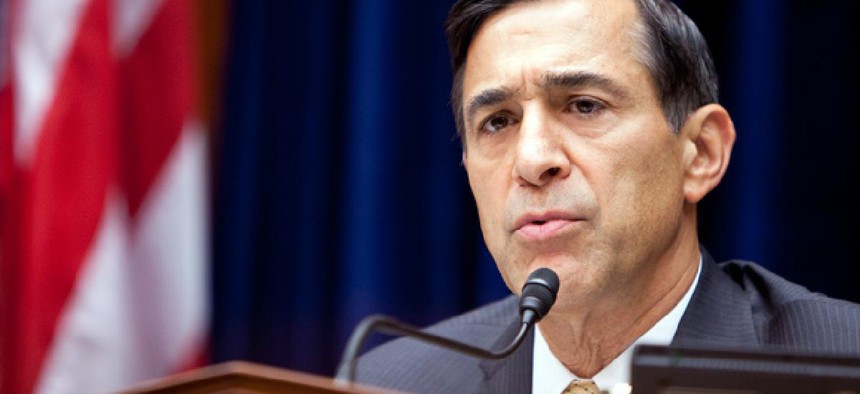
Rep. Darrell Issa, R-Calif. House Committee on Oversight and Government Reform
Issa bill would require more barring of bad-actor contractors
Oversight chairman says $1 trillion a year awarded to “cheats and fraudsters.”
Agencies are making insufficient use of suspension and debarment procedures to deny contracts to unethical applicants, the House oversight chairman said on Thursday as he released for discussion draft legislation aimed at centralizing the government’s policing of bad-actor contractors.
“In the 21st century, we must have zero tolerance for fraudsters, criminals, or tax cheats receiving taxpayer money through grants or contracts,” said Rep. Darrell Issa, R-Calif., chairman of the Oversight and Government Reform Committee. More than $1 trillion a year, his statement said, is awarded in contracts and grants “to companies and individuals that are or should be banned from receiving taxpayer funds.”
Despite congressional oversight, administrative action and public scrutiny in recent years, Issa said, the Government Accountability Office has found that six of 10 agencies that each spent more than $1 billion per year in federal awards lacked effective suspension and debarment programs. Some recipients, he suggested, may not be properly listed on the System for Awards Management (which until November 2012 was called the Excluded Parties List System).
The bill would replace 41 agency offices with a central civilian board for suspensions and departments coordinated by the General Services Administration. It would consolidate regulations governing suspension and debarment procedures; raise standards for transparency in treatment of interested parties, particularly small businesses “with limited legal resources;” and provide for an expedited review process. “The board would also save money,” Issa said, “by sharing administrative resources with the already centralized Civilian Board of Contract Appeals.”
Contractors have long been wary of proposals to make suspension and debarment mandatory. “The current suspension and debarment procedures give the government broad authority to properly respond to a wide range of violations,” the Professional Services Council said in a 2011 letter to Congress. The group opposed legislation that “strips companies of their due process rights and strips [agency officials] of their ability to use their expert judgment to determine the most appropriate course of action to protect the government’s interests.”







